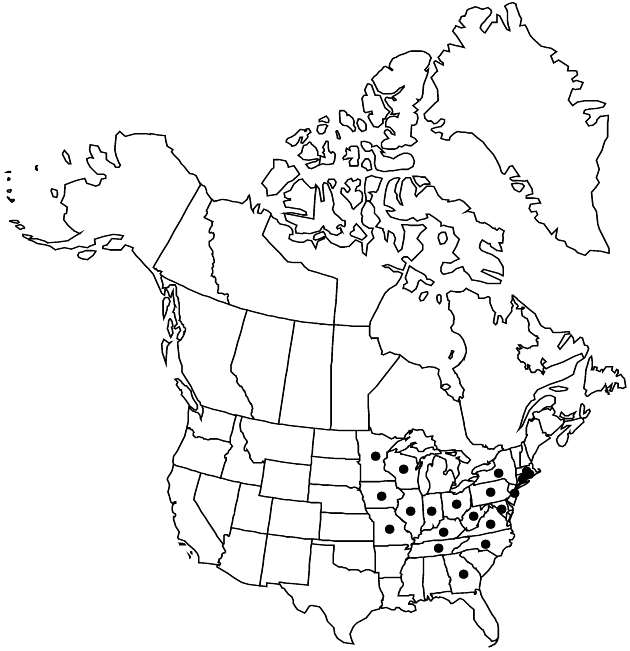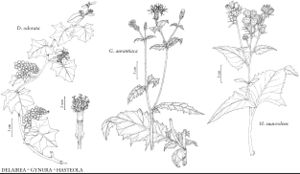Hasteola suaveolens
Bot. Mater. Gerb. Bot. Inst. Komarova Akad. Nauk S.S.S.R. 20: 381. 1960.
IllustratedEndemic
Basionym: Cacalia suaveolens Linnaeus Sp. Pl. 2: 835. 1753
Synonyms: Senecio suaveolens (Linnaeus) Elliott Synosma suaveolens (Linnaeus) Rafinesque ex Britton
Treatment appears in FNA Volume 20. Treatment on page 611.
Plants (60–)100–120(–240) cm. Leaves: basal and proximal cauline 20–30(–40) cm, proximal cauline blades hastate to deltate or lanceolate. Involucres campanulate to obconic, 11–14 mm. Phyllaries (10–)12–14(–17). Florets 18–55; corollas ochroleucous or white (rarely pinkish), 8–9(–10.5) mm; anthers 2–2.5 mm. Cypselae pale green to light brown, 5–7(–9) mm; pappi 6–7 mm. 2n = 20.
Phenology: Flowering late summer–fall.
Habitat: Rich woods, shaded, wet areas bordering streams
Elevation: 10–300+ m
Distribution

Conn., Ill., Ind., Iowa, Ky., Md., Mass., Minn., Mo., N.J., N.Y., N.C., Ohio, Pa., R.I., Tenn., Va., W.Va., Wis.
Discussion
Hasteola suaveolens is now less common or absent in the northeastern part of its historic range.
Selected References
None.
Lower Taxa
None.
